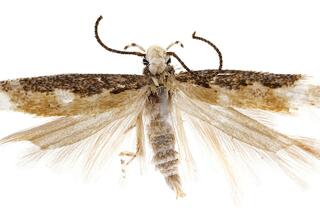Hermit Crab Words
- Share via
The easiest way to talk about something new is not to come up with a new word for it but to start using an old word in a new sense. The new meaning can even take over, like a hermit crab squatting in another creature’s shell. This happened a lot when vegetables from the Americas flooded Europe, Asia and Africa.
The English word “bean” originally meant the fava bean, but favas lost their importance when more versatile and convenient legumes, such as white and kidney beans, came in from the New World. Meanwhile, in the Mediterranean, New World beans were replacing the black-eyed pea. That’s what the Italian fagiolo and Spanish frijol (like their Latin original, phaseolus) originally meant. The exact same thing also happened in India, where the old name for black-eyes, rajma, came to mean kidney beans.
In India and Central Asia, corn took over the name of an ancient millet, makkai. Potatoes generally brought their name with them, but in some places, the potato replaced an indigenous root vegetable, which is why potatoes are aloo in India and qulqa^s in some dialects of Arabic (qulqa^s originally meant taro root, once a common Mediterranean food). Tomatoes are called something like tomatoes nearly everywhere, but both Romanians the Kirghiz of Central Asia call them names meaning (patlagea and petanchan, respectively) eggplant.
Peanuts were enthusiastically welcomed in Africa because people there were already familiar with plants that had the same bizarre habit of growing their seed pods underground. So in the Congo, peanuts took over nguba, the old name for Voandzeia subterranea. Ironically, a century or so later, slaves brought this word back to the New World, and that’s where the South got “goober,” its word for peanut--an African name for a Peruvian vegetable.
More to Read
Sign up for The Wild
We’ll help you find the best places to hike, bike and run, as well as the perfect silent spots for meditation and yoga.
You may occasionally receive promotional content from the Los Angeles Times.





